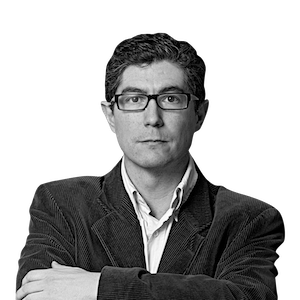The necessary pause


Summer gives me time to observe myself from the outside. With the phone quieter, no meetings, and long days, silence seems strange and unusual. Without tasks to drag us down or urgent needs to distract us, we realize the brutality of our pace, the tensions we've normalized. And we discover unfinished conversations with ourselves. And we experience that stopping isn't a luxury, but an act of mental hygiene.
Seneca said, "It's not that we have little time, it's that we waste a lot of it." Pause has something to do with that: when you stop, time stops being measured by a clock and becomes presence. A second of peace holds an eternity, while a hurried hour doesn't hold even a second.
I remember one summer when I decided not to open my email for two weeks. Ideas started coming naturally. Without searching for them. Without forcing them. They call it "creative incubation": the mind, freed from immediate pressure, finds new connections. Einstein did it while walking. Nietzsche, hiking in the Alps in the summer. They knew that thought needs air.
Stopping is also taking a step back. Seeing life as if it weren't entirely yours, as if you were watching it from a theater seat. They call it "witness consciousness," and it allows us to put problems into perspective, identify our bad habits, and decide what we want to change. Marcus Aurelius, in his Meditations, advised seeing oneself "as a traveler on earth," to remember that nothing is so serious when you look at it from further away.
We can't always take so many days for this. Work life doesn't allow such generous amounts of time. But we can introduce short, deliberate breaks: five minutes of conscious breathing before a workday, a short walk without a phone between tasks, a Saturday morning without an agenda. It won't change our lives, but it will change our outlook. One way to achieve this is to associate the break with a specific place: a park bench, a table by a window, a stretch of street. This creates a ritual that protects that mental space even on the most hectic days.
The danger of never stopping is that life becomes a conveyor belt: you move without knowing where you're going. The only way to correct your course is to stop for a moment, look at the map, and, from a place of calm, choose again. Because only when you stop can you listen to yourself. And sometimes, it's precisely in that pause that the answer you've been looking for appears.
